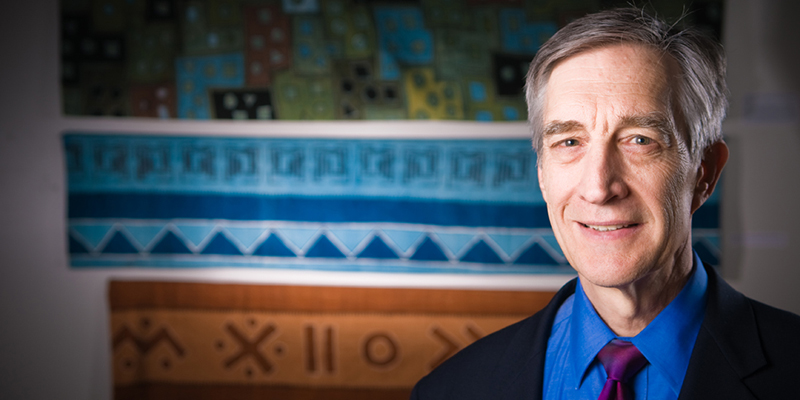Message from the Dean: When Words Lose Their Meaning
January 9, 2018
By Stephen Esquith, Dean of the Residential College in the Arts and Humanities
 I have often used this space on the RCAH website to consider live issues in the college. In this Message, I want to air a concern that arises not inside RCAH, but, nevertheless, seems to be encircling us and shouldn’t be ignored: the notion of “fake news” and its correlate, “alternative facts.” What are we to make of these slogans that President Trump and his supporters invoke so gleefully to discredit those who call into question the truth of what they say? This would not be nearly as worrisome were it not for the fact that this President, more than any of his recent predecessors, has a habit of lying, obfuscating, and ignoring the truth.
I have often used this space on the RCAH website to consider live issues in the college. In this Message, I want to air a concern that arises not inside RCAH, but, nevertheless, seems to be encircling us and shouldn’t be ignored: the notion of “fake news” and its correlate, “alternative facts.” What are we to make of these slogans that President Trump and his supporters invoke so gleefully to discredit those who call into question the truth of what they say? This would not be nearly as worrisome were it not for the fact that this President, more than any of his recent predecessors, has a habit of lying, obfuscating, and ignoring the truth.
Saying that you have alternative facts is more than a clever way of dismissing hard questions without an argument. Calling the mainstream media the “fake news” is not just a way of disputing the reliability of their sources without supporting evidence of your own. In a democracy, this kind of polemical language coming from the highest office undermines a democracy’s greatest virtue: the ability to participate informatively and truthfully on the most serious matters facing the country.
This is not the first time this has happened in a democratic society. The ancient Greeks called such situations stasis, the most intense form of violent conflict. In his History of the Peloponnesian Wars,Thucydides described the civil war in neighboring Corcyra in 427 BCE as a warning of what may lay ahead for Athens.
Irrational boldness was considered as manly loyalty to one’s partisans; prudent delay as specious cowardice, moderation as a disguise for unmanliness, and a well-rounded intelligence as a disqualification for action. (3.82.4)
When words lost their meaning in Corcyra, other moral and political norms began to crumble. Again Thucydides: “Every form of death took place, the sort of thing that is likely to happen in such a situation . . . for example, a father killed his child and some were dragged away from the shrines and killed nearby; some others were walled up and died in the shrine of Dionysus.”
Today, for President Trump, manliness is a coveted license to harass and assault women. Some cling to it as a symbol of benign patriarchal responsibility, while still others reject it as a sexist anachronism. For President Trump, the slogan “Make America Great Again” means generating greater economic power whatever the cost to the poor and the environment, while for others it is a thinly veiled threat to block refugees and purge the nation of its racial and ethnic diversity.
I fear that we are living in our own Corcyrean moment when alternative facts threaten to derail democracy and more and more people are being “walled up” in our prisons and at our borders in the ill-defined name of national sovereignty. Instead of focusing on the tweets of President Trump, perhaps we should ask how we got to the point where someone who lives in his own alternative universe has succeeded in wielding so much power over so many others with so little regard for basic human decency, and so little interest in telling the truth.
In RCAH, we are committed to understanding the origins of our current stasis and, through engagement with those President Trump would have us ignore or expel, we are equally committed to constructing inclusive democratic practices and institutions in a political language that we all can take pride in and trust.

